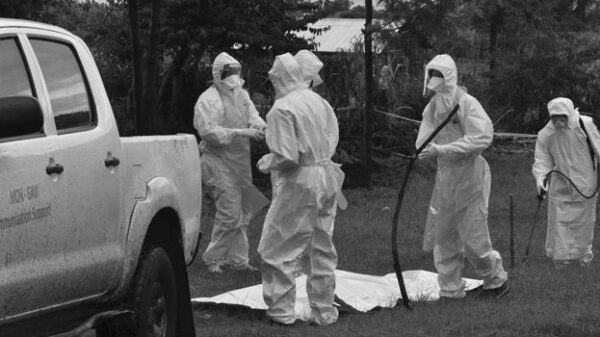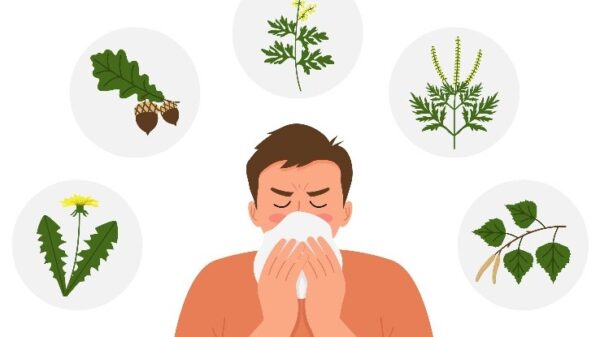NAIROBI October 6 – Water is life, so they say, but what happens in its absence? This question may be well answered by Nairobi residents especially those in Umoja Estate in Eastlands.
A brief visit to the populated middle class area brings to fore the ills of the chronic water shortage in Nairobi’s Eastlands estates.
The residents here continue to suffer even as the government moves to mitigate the problem by disconnecting communal water schemes on the main pipeline feeding into Nairobi.
Meet Robert Muendo, a jua kali artisan at Umoja Sewer. Robert says his life has become unbearable because of the water shortage. He says he has not taken a bath for three days because water is expensive.
There have emerged vendors who are now cashing in on water by selling small quantities at exorbitant prices. Robert believes the situation is already out of hand and any intervention should be made with haste.
“I work the whole day in the sun, carrying heavy building material but sometimes I can’t get enough water to bath with. Water is now more expensive than soda,” he says with discernible sorrow.
Robert’s sentiments are similar to those of many. Lucy Njeri, has a two month old baby. She told Capital News that her situation has forced her to hire a neighbour to fetch water for her. Lucy’s daily water consumption is costing her about Sh300.
“Imagine a person like me, I have to buy water everyday since the baby’s clothes and nappies need regular washing,” says the single mother.
She, like other disturbed residents of Umoja Innercore and Umoja Two as well as neighbouring Tena estate, says she is apprehensive of probable outbreaks of water borne diseases in the densely populated estate.
But as unfair as life has always been, Michael Mutiso, 27, a water vendor is a happy man. Michael tells of how he’s been making a sure kill from the water business. He wakes up at 4am to fetch water from Umoja One, about seven kilometers away and returns in good time to begin distributing to his clients who would have booked the previous evening.
His day ends late, having made at least ten trips, carrying 16 jerrycans each and which he sells at between Sh30 and Sh50 each. In short, he takes home over Sh4000, with the help of his friend Kennedy Mwendwa.
Michael and Kennedy’s rags to riches story does not however impress the authorities. Water and Irrigation Minister Charity Ngilu has directed all water vendors in the city to be registered with the Nairobi Water and Sewerage Company (NWSC) within one week.
Ngilu has also ordered that the vendors sell the precious commodity at a cost of Sh2 per 20 litre Jerican, which is now being sold at between Sh30 and Sh50.
“I want to warn Nairobi residents that they also need to ask those selling water to them to give a license that we have given to them to show where they have gotten their water because that will also help us to catch those who are stealing our water, other water is not even clean,” Ngilu told a press conference on Friday.
Ngilu says the provincial administration would, in conjunction with the Nairobi Water and Sewerage Company (NWSC), crack the whip on illegal connections. NWSC Corporate Affairs Manager, Mabaruku Vyakweli says the company is loosing 40 percent of water meant for the city daily to illegal connections and unlicensed car washers, who have seen a continuous interruption of water supply from time to time.
Vyakweli says Nairobi’s water rewww.capitalfm.co.keir at Ndakaine is loosing about four cubic centimetres of water daily and therefore there’s an urgent need sensitize Kenyans on the importance of water harvesting.
He says the demand for water has risen yet the supply is still the same at only 450,000 cubic meters a day, against a demand of about 560,000 cubic meters.
Minister Ngilu has also noted that the governments had invested Sh50 million in getting alternative water supplies to the communal schemes. Areas affected include Kiamwangi, Gatundu, Ng’enda, Gakoe, Muchatha, and Ruaka among others.
The minister has however maintained that NWSC would continue with the water rationing programme but assured that all residents will get the supply.
“I have spent the day in meetings with the engineers and they have promised that they will release the water in full pressure for six hours in each area,” she said.
She said that her ministry had requested for an additional Sh400 million from Treasury to purchase 20 water dowsers to service slums which she said were worst affected by the crisis. The construction of 200 water points in these areas has already commenced.
Water shortages in the capital have persisted for years and Mrs Ngilu attributes this to lack of investment in the water storage facilities for decades.
The minister said that the government would be investing in new water storage facilities, including a new Sh24 billion dam on the Maragwa River.
“The government has secured Sh7.6 billion for an overhaul of water and sewerage facilities in Nairobi. Meanwhile the ministry will next month start main rehabilitation of Sasumwa dam at a cost of Sh2.2 billion to be completed within one and a half years,” Mrs Ngilu said.
She said that he would be presenting before cabinet a policy paper to strengthen the developments. She also hinted that her ministry was working closely with the Attorney General’s office to come up with more punitive measures against those engaged in illegal connections.
For now, Nairobi residents have no choice but to grapple with the situation until March next year, when long rains which have been otherwise unpredictable, return.
































